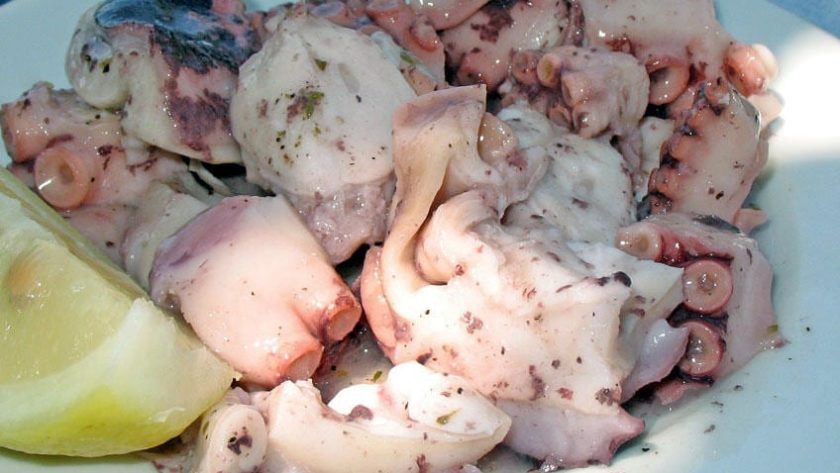The presentation of our food is just as important as what’s actually on our plate. But some foods don’t score so high when it comes to being visually appealing. In fact, they’re downright unappealing. However, close your eyes and give the following health foods a try because they really are worth including in your diet.
 Burdock Root: This plant is traditional in Japanese cuisine. A popular Japanese dish is “kinpira gobo” where the root is shaved into little strips, combined with carrots and braised with soy sauce, sugar, mirin and/or sake, and sesame oil. It’s often pickled and used to fill sushi rolls. This root contains no cholesterol and is very low in sodium, high in dietary fiber, and rich in manganese, magnesium, potassium and B6.
Burdock Root: This plant is traditional in Japanese cuisine. A popular Japanese dish is “kinpira gobo” where the root is shaved into little strips, combined with carrots and braised with soy sauce, sugar, mirin and/or sake, and sesame oil. It’s often pickled and used to fill sushi rolls. This root contains no cholesterol and is very low in sodium, high in dietary fiber, and rich in manganese, magnesium, potassium and B6.
 Octopus: These sea creatures are a great catch for divers and eaten regularly in Hawaii. They aren’t pretty to look at with their ugly head, big bulging eyes, and eight arms bearing suction cups, but if you’ve ever had the experience of eating them fresh out of the water, salted and served hot off the grill, you’ll agree they’re worth the culinary adventure. Also known as “tako” in Japanese cuisine, it’s included in sushi and other side dishes. Octopus is low in saturated fat and a good source of niacin, vitamin B6, phosphorus, potassium and zinc, and a very good source of protein, vitamin B12, iron, copper and selenium.
Octopus: These sea creatures are a great catch for divers and eaten regularly in Hawaii. They aren’t pretty to look at with their ugly head, big bulging eyes, and eight arms bearing suction cups, but if you’ve ever had the experience of eating them fresh out of the water, salted and served hot off the grill, you’ll agree they’re worth the culinary adventure. Also known as “tako” in Japanese cuisine, it’s included in sushi and other side dishes. Octopus is low in saturated fat and a good source of niacin, vitamin B6, phosphorus, potassium and zinc, and a very good source of protein, vitamin B12, iron, copper and selenium.
 Wakame: Wakame is a sea vegetable, or edible seaweed. It’s been a part of Japan’s aquaculture and has been grown by sea farmers for hundreds of years. Wakame is dark green with a rather slippery texture. It’s popular in Japanese dishes, salads and soups. Wakame is a rich source of omega-3 fatty acid and high in calcium, iodine, thiamine and niacin.
Wakame: Wakame is a sea vegetable, or edible seaweed. It’s been a part of Japan’s aquaculture and has been grown by sea farmers for hundreds of years. Wakame is dark green with a rather slippery texture. It’s popular in Japanese dishes, salads and soups. Wakame is a rich source of omega-3 fatty acid and high in calcium, iodine, thiamine and niacin.
 Shiitake Mushrooms: These fungi are cultivated and popular in Asian countries. It’s a delicacy in the Japanese culture and known as “shiitake”. They’re dried and rehydrated by soaking in water before using. They’re served in Japanese soups and are often used as the base of most soup stocks. Shiitake is very low in saturated fat, cholesterol and sodium. It’s also a good source of fiber, vitamin B6, folate, magnesium, potassium, zinc and manganese and a very good source of riboflavin, niacin, pantothenic acid, copper and selenium.
Shiitake Mushrooms: These fungi are cultivated and popular in Asian countries. It’s a delicacy in the Japanese culture and known as “shiitake”. They’re dried and rehydrated by soaking in water before using. They’re served in Japanese soups and are often used as the base of most soup stocks. Shiitake is very low in saturated fat, cholesterol and sodium. It’s also a good source of fiber, vitamin B6, folate, magnesium, potassium, zinc and manganese and a very good source of riboflavin, niacin, pantothenic acid, copper and selenium.
 Sardines: These slimy guys are one of the best sources of heart-healthy omega-3 fatty acids. They’re also rich in vitamin D, a nutrient essential to absorb calcium. So not only are sardines good for boosting your HDL (good) cholesterol and improving blood vessel function, they’re a solid source of protein and good for building bone strength.
Sardines: These slimy guys are one of the best sources of heart-healthy omega-3 fatty acids. They’re also rich in vitamin D, a nutrient essential to absorb calcium. So not only are sardines good for boosting your HDL (good) cholesterol and improving blood vessel function, they’re a solid source of protein and good for building bone strength.
Ugly Foods Worth a Second Look

